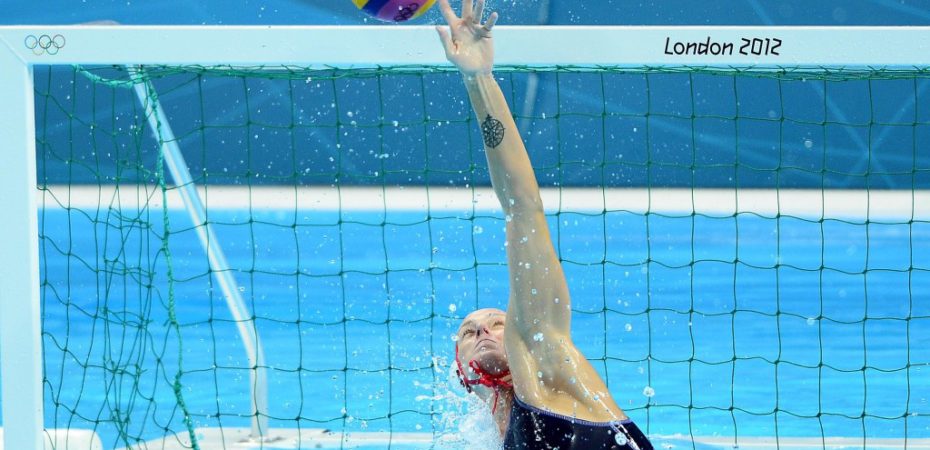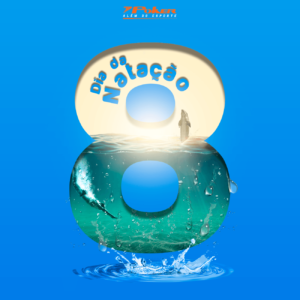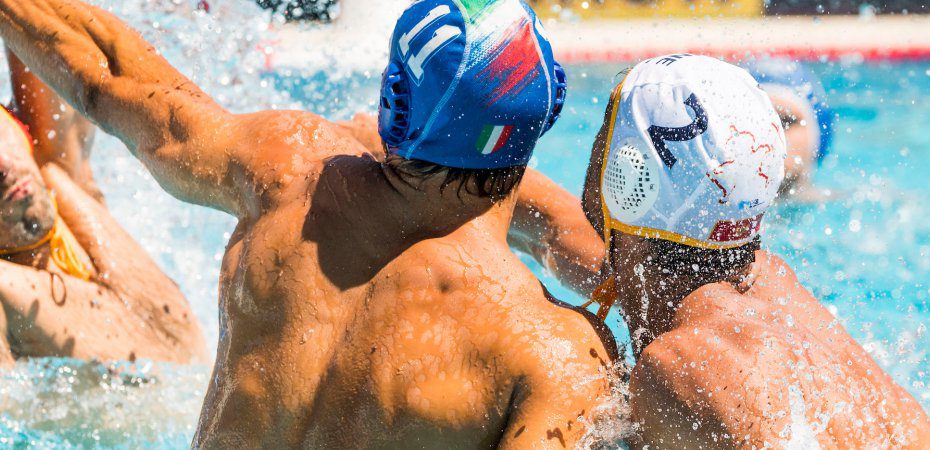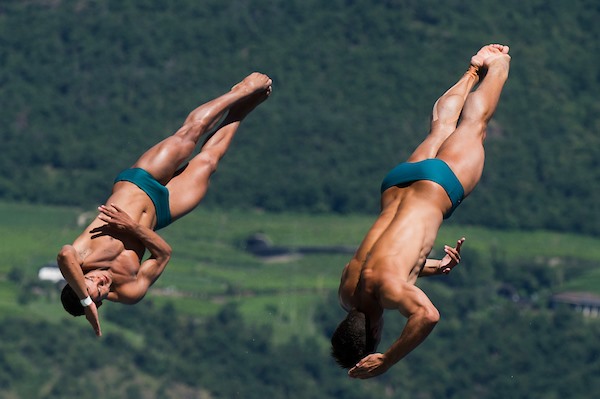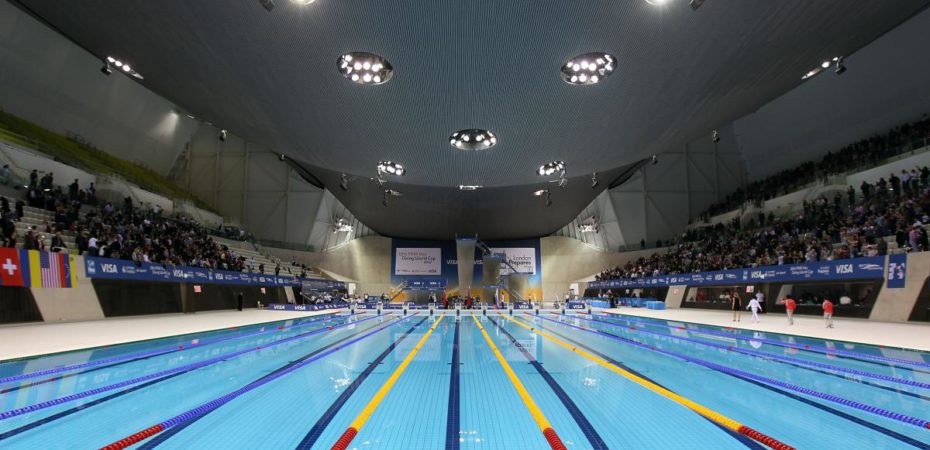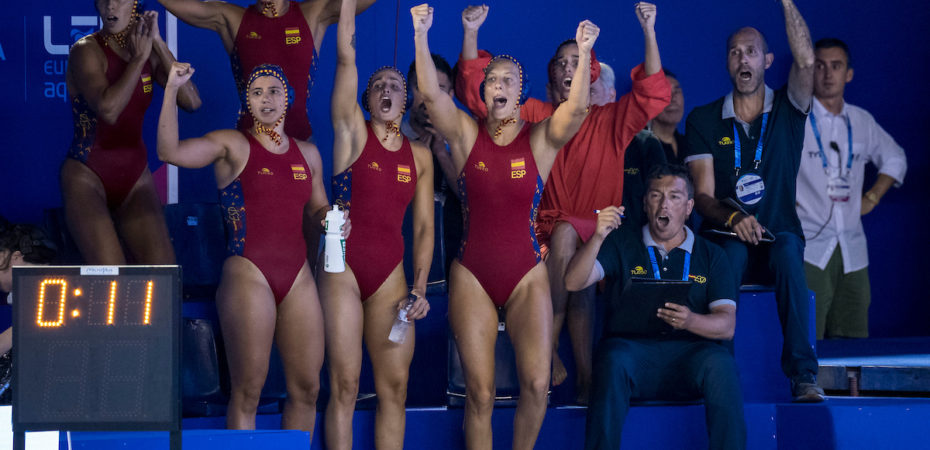WATER POLO USA Announces 2019 Hall Of Fame Induction Class
5 anos ago 0
Irvine, CA – April 5 – USA Water Polo is proud to announce the 35th induction class for the USA Water Polo Hall of Fame. The seven-member class features six Olympic-medal winning athletes alongside one of the most decorated college coaches in the game. Olympic Gold and Silver medalists Betsey Armstrong, Jessica Steffens, and Lauren Wenger join Olympic Silver medalists Ryan Bailey, Jeff Powers, and Adam Wright as the athletes inducted this year. The six athletes are joined by six-time NCAA championship-winning head coach John Tanner of Stanford.
The seven inductees will be recognized June 7 at the 2019 USA Water Polo Hall of Fame Luncheon at the DoubleTree Hilton Pleasanton in Pleasanton, CA. The event will help kick-off the 2019 Masters National Championship at area pools in the Tri-Valley, CA area.
Tickets are on sale now for the luncheon with individual and full table tickets available by clicking here. Hall of Fame members, please contact Alexis Lupton directly at alupton@usawaterpolo.org or 714.500.5011. For more information on the Hall of Fame, including a look at all the past inductees, click here. For more information on the Masters National Championship, click here.
More on the 2019 USA Water Polo Hall of Fame Induction Class:
Betsey Armstrong
In a sport full of west coast players, goalkeeper Betsey Armstrong put Michigan water polo on the map. At 6’1″ with a formidable wingspan, the Ann Arbor native was a key piece for the University of Michigan. Her college career would earn her Michigan Athletics and CWPA Hall of Fame honors, but she stepped away from competition and the National Team pipeline following the conclusion of her time with the Wolverines. After a brief hiatus she reentered the fold in 2006 and quickly became Team USA’s trusty last line of defense. She broke out in 2007, helping Team USA to a FINA World Championship while earning top goalkeeper honors. Her first of two trips to the Olympic podium culminated with a Silver medal in Beijing in 2008. Entrenched as Team USA’s starter and the best goalkeeper in the world, Armstrong and the Americans launched a run that has seen the USA Women become the dominant force in the game. A FINA World Championship in 2009 was up next followed by a harrowing Olympic qualification at the 2011 Pan American Games where Armstrong made multiple game-saving stops to lift Team USA to victory in a Guinness World Record setting 20-round shootout with Canada. The pinnacle was reached in 2012 when Armstrong anchored the cage for Team USA’s first Olympic Gold Medal in London. Her career accolades included six FINA World League titles and Women’s Water Polo Player of the Year honors from both FINA and Swimming World Magazine. After retiring in 2014, Armstrong has stayed close to the sport as a coach in the collegiate and ODP ranks in addition to competing for the New York Athletic Club in various tournaments.
Ryan Bailey
One of the most menacing forces at two meters for more than a decade, Ryan Bailey took part in four Olympic Games for Team USA, claiming Silver in 2008. The native of water polo-rich Long Beach, CA, Bailey competed for Millikan High School before enrolling at UC Irvine, a program that had become a launchpad for future Olympians. In the late 1990s he joined the USA Water Polo Men’s Senior National Team and would be a familiar face in the lineup until 2013. Initially the back-up center, Bailey became a key piece of the offense and an intimidating presence by the time the 2004 Olympic Games rolled around and Team USA took on the best in the world. Winner of Gold medals at four Pan American Games, the high-water mark for Bailey came in 2008 when a previously ninth-ranked USA squad shocked the world, claiming Silver in the Beijing Olympics. Bailey added a FINA World League Silver medal to his resume and closed his career in 2013 helping the USA men qualify for the 2013 FINA World Championship. Away from Team USA, Bailey was an international sought-after talent, capping up for a variety of clubs over his career, including VK Jug Dubrovnik and VK Jadran Split in Croatia, Dynamo Moscow in Russia, Panionios in Greece and VK Partizan in Serbia. He remains involved in the game today coaching, teaching clinics, and competing in Masters Water Polo for the Olympic Club.
Jeff Powers
Jeff Powers path to water polo greatness was uncommon. Born in Tennessee, Powers grew up in San Luis Obispo, CA, which was not a water polo hotbed at the time. Fate intervened when UC Irvine and Hall of Fame coach Ted Newland brought Powers on board. At a program with a penchant for developing talent, Powers blossomed and before long was part of the USA Men’s National Team. He made his Olympic debut in 2004, the first of three appearances representing Team USA on the world’s biggest stage. At 6 feet 7 inches tall, Powers was a versatile talent with a high-powered outside shot. It was his late goal in a victory over Serbia in the 2008 Olympics that signaled redemption for the USA Men’s National Team. For the previously ninth-ranked USA squad, the semi-final win assured the team of its first medal in 20 years as the squad departed the Beijing Olympics with Silver. After a fourth-place finish at the 2009 World Championships in Rome, Powers was named to the All-World Team. He became a key piece abroad for a variety of club teams for seven seasons with stops in Greece, Italy, and Hungary. After taking part in the 2012 Olympic Games in London, Powers retired after helping Team USA qualify for the 2013 FINA World Championship—but he hasn’t drifted from the game. A longtime member of the Newport Water Polo Foundation, Powers has taken part in multiple USA Water Polo competitions. He remains entrenched in the sport as a high school coach in addition to coaching with ODP alongside camps and clinics.
Jessica Steffens
Hailing from a family that has some 50 cousins—many of whom played water polo—it should come as no surprise that Jessica Steffens also got involved in the sport. Two Olympic medals and a FINA World Championship later, she set the bar fairly high. Emerging from Danville in northern California’s East Bay, Steffens was a standout in the high school and club ranks, cracking the Women’s Senior National Team roster as a teenager. In 2007 she helped the USA Women qualify for the Olympic Games in Brazil only to find herself halfway around the world a week later with the Junior National Team in Portugal. In 2008 she was solidified on the Senior National Team, helping the squad to Silver at the Olympic Games in Beijing. It was a breakout performance from Steffens who was named to the Media All-Star Team. She then returned to the college ranks at Stanford, balancing National Team competition with helping the Cardinal become one of the top teams in the country. Battling through injuries in 2010, Steffens returned to form in 2011, helping navigate Team USA through pressure-packed qualification at the 2011 Pan American Games. The 2012 Olympic Games followed, and this time the result was different. Steffens, considered one of the best defenders in the world, played an important role in lifting Team USA to its first Olympic Gold in program history. She remains involved in the game today as a member of the USA Water Polo Board of Directors as an Athlete Representative.
John Tanner
John Tanner has risen to become one of the most prolific women’s water polo coaches in the history of the college game—but it all started in the pool. Tanner was a standout swimmer and water polo player in high school and went on to help the Stanford men’s water polo team to three NCAA titles while earning All-American honors his senior year. Then amid his college success, his coaching career began, first at Menlo-Atherton High School and then the Menlo School before becoming an assistant coach at Stanford. From there it was off to the University of the Pacific where he started as the head coach for men’s water polo team before adding head coach for men’s swimming and director of aquatics to his responsibilities. In the late 80s he began working with the USA Water Polo National Teams, first as a scout and eventually as an assistant coach with the U.S. Men’s National Team, highlighted by Gold medals at the 1991 and 1997 FINA Cup plus appearances at the 1992 and 2000 Olympic Games. While his water polo coaching career accelerated, his swimming guidance reached new heights as Tanner coached Brad Schumacher to two Olympic Golds at the 1996 Atlanta Games. In the late 90s Tanner took over the women’s water polo program at Stanford and immediately delivered the most successful season in school history to that point. Bigger success followed with the program’s first NCAA title in 2002 anchored by its first Cutino Award winner in Brenda Villa. With all of that success, the current decade has seen a new level of excellence from the Stanford women as Tanner & Co. have claimed five NCAA crowns in the last eight years—all while sending multiple athletes to the Olympic Games. Away from the college game, Tanner has stayed involved in the sport through the Stanford Water Polo Club and as a host for various age group and national team competitions.
Lauren Wenger
One of the most versatile players to ever cap up for the USA Women’s National Team, utility Lauren Wenger did it all. At 6 feet, 3 inches tall, Wenger combined smothering defense in all areas of the pool with a long-armed attack on the offensive end—not to mention her ability to operate out of two meters. A native of Long Beach, a water polo hotbed in southern California, Wenger went on to USC where she was a force for the Women of Troy. She earned Cutino Award honors in 2006 as the college game’s top player and added an NCAA title to her resume. At the same time, she progressed through the USA Water Polo National Team pipeline, earning a Silver medal at the 2005 World Championship. She served notice of her talents to the water polo world in 2007 when she earned MVP honors at the FINA World Championship while helping Team USA to a Gold medal. A year later she reached her first Olympic podium, earning Silver in Beijing. She added a second World Championship in Rome in 2009 on the run-up to her greatest career achievement, the program’s first Olympic Gold medal at the 2012 London Games. In addition to her Olympic and World titles, Wenger added two Pan American victories and multiple World League crowns. No stranger to international club competition, Wenger also capped up with Olympiacos and Glyfada in Greece and Orizzonte in Italy.
Adam Wright
Adam Wright has lived a life immersed in aquatics since his earliest years. Trained in swimming by Long Beach legend Klaus Barth, Wright gravitated toward water polo starring for prep power Long Beach Wilson. From there it was off to UCLA where Wright balanced winning NCAA titles for the Bruins with a burgeoning career on the USA Water Polo National Team. Wright made his Olympic debut in 2004, the first of three Olympiads in which he would compete for Team USA. A winner of three Pan American Games Gold Medals, Wright earned his biggest international achievement in 2008, claiming Olympic Silver in Beijing. A multi-talented threat in the pool, Wright evolved from a volume scorer to deft facilitator who saw his skills in high demand both domestically and internationally. Prior to retiring after the 2012 Olympic Games, Wright competed for three club teams in Italy and spent a year with Dynamo Moscow in Russia. A repeat National Championship winner with the New York Athletic Club on home soil, Wright always had coaching in his sights. From part-time roles during his early playing days at Long Beach Wilson High School to his status now as head coach of the UCLA Men’s and Women’s Water Polo Teams, Wright remains invested in the sport. Most recently Wright has guided the UCLA men to three NCAA Championships in the last five years, elevating the Bruins to new heights.
Selection Procedure Information
Inductees were chosen through a process that included open nominations by their peers, evaluation of their candidacy by the USA Water Polo Hall of Fame Committee, and final ratification of the committee’s recommendations by the USA Water Polo Board of Directors. USA Water Polo inducted its first Hall of Fame class in 1976.
More details on the selection process can be found here: https://usawaterpolo.org/sports/2018/12/19/recognition.aspx#hof
About USA Water Polo
USA Water Polo, Inc., is the national governing body for water polo in America, overseeing our United States Olympic program as well as 20 championship events annually, such as Junior Olympics and Masters National Championships. With more than 45,000 members, USAWP also is the sanctioning authority for more than 500 member clubs and more than 400 tournaments nationwide. USAWP is committed to the development of the sport throughout the U.S., fostering grass-roots expansion of the sport and providing a national system of affiliated clubs, certified coaches, and officials.
Greg Mescall
Director of Communications, USA Water Polo

O Portal Francisswim.com.br promove diversas ações e projetos visando inclusão social e responsabilidade ambiental que são compartilhadas em nossas plataformas de redes sociais.
Social Responsability
The Francisswim.com.br Portal promotes diverse actions and projects aiming at social inclusion and environmental responsibility that are shared in our platforms of social networks.
Saiba mais sobre a Casa de Apoio Madre Ana
A Casa de Apoio Madre Ana proporciona um acolhimento digno a pacientes pediátricos e adultos portadores de câncer, transplantados, com problemas cardíacos, dentre outros, juntamente com seus acompanhantes vindos do interior do Estado e de outros estados brasileiros. São pessoas de baixa renda que necessitam de um suporte integral durante o período do seu tratamento na Santa Casa.
Os hóspedes recebem moradia, alimentação, material de higiene e conforto espiritual sem nenhum custo. Tudo com um único objetivo: aumentar as chances de cura dos nossos pacientes assistidos.
O leitor do site Francisswim.com.br que quer contribuir pode clicar na logomarca da Casa de Apoio Madre Ana e adicionar uma doação. Além disso, também é possível ser doador mensal para tanto, basta acessar o link: https://goo.gl/cK5wHb
Saiba mais sobre o Banco de Alimentos
O Banco de Alimentos atua como um gerenciador de desperdícios administrando três operações: coleta de doações, armazenamento, e distribuição qualificada de alimentos para entidades beneficentes, tais como creches, asilos, lares de excepcionais, entre outras ongs. A Rede de Bancos de Alimentos do Rio Grande do Sul possui 23 Bancos de Alimentos associados no Estado, os quais doam mais de 500 toneladas de alimentos para 900 instituições, todos os meses. Além da doação de alimentos, desenvolve projetos de nutrição em parceria com as principais universidades Gaúchas, levando mais Segurança Alimentar e Nutricional para as pessoas atendidas nas entidades beneficentes. Participe dessa luta contra a fome e a miséria, entre em contato com o Banco de Alimentos! Telefone: 51-3026.8020 – E-mail: bancodealimentos@bancodealimentosRS.org.br.
Site para maiores informações: http://www.redebancodealimentos.org.br/Inicial

